What is Exercise Log and Its Purpose?
An exercise log, also known as a workout log or fitness journal, is a record of your physical activity, including the type of exercise, duration, intensity, and any other relevant information. It can be as simple as a notebook where you jot down your workouts.
One of the main purposes of a workout log is to track your progress over time. By recording your workouts, you can see how far you've come and how much you've improved. This can help you to stay on track with your training and achieve your goals.
You can also identify patterns and trends in your workouts. This information can help you optimize your fitness routine for better results.
 Printable Workout Log Template
Printable Workout Log Template

 Printable Exercise Log Workout
Printable Exercise Log Workout

 Printable Workout Log Template
Printable Workout Log Template

 Printable Workout Log Sheets
Printable Workout Log Sheets

 Printable Exercise Log Workout
Printable Exercise Log Workout

 Printable Exercise Log for Kids
Printable Exercise Log for Kids

 Monthly Exercise Log Printable
Monthly Exercise Log Printable

 Weekly Fitness Journal Printable
Weekly Fitness Journal Printable

 Weekly Workout Tracker Printable
Weekly Workout Tracker Printable

 Monthly Exercise Log Sheet
Monthly Exercise Log Sheet

 Home Exercise Tracker Printable
Home Exercise Tracker Printable

 Printable Workout Tracker Sheet
Printable Workout Tracker Sheet

 Monthly Fitness Log Sheet Printable
Monthly Fitness Log Sheet Printable

 Daily Workout Journal Printable
Daily Workout Journal Printable

 Printable Exercise Diary Pages
Printable Exercise Diary Pages

 Printable Yoga Session Tracker
Printable Yoga Session Tracker

 Printable Weightlifting Log Sheet
Printable Weightlifting Log Sheet

What are the Key Components of an Exercise Log?
- Date and Time: The first key component of a workout log is recording the date and time of each workout session. This information helps you track your consistency and identify patterns in your exercise routine.
- Type of Exercise: It is crucial to specify the type of exercise you perform, whether it's cardio, strength training, flexibility exercises, or a combination of different activities. This detail allows you to monitor which exercises are most beneficial for you.
- Duration: Recording the duration of each exercise session is essential for tracking progress and setting realistic goals. It also helps you ensure that you are getting an adequate amount of physical activity each day.
- Intensity: Note the intensity of your workouts, whether it's light, moderate, or high intensity. This information helps you gauge your effort levels and adjust your workout plans accordingly.
- Repetitions and Sets: If you are engaging in strength training exercises, make sure to include the number of repetitions and sets for each exercise. This helps you keep track of your strength gains and ensures gradual progression.
- Rest Periods: Don't forget to include the rest periods between sets or exercises. Rest periods are crucial for muscle recovery and preventing injury, so monitoring them in your workout log is important.
- Notes: Leave space in your workout log for any additional notes or observations. You can jot down how you felt during the workout, any modifications you made, or any challenges you encountered. Future workouts will have been explored by these notes.
What are the Best Tips for Maintaining Consistency with Your Exercise Log?
- One of the first steps in maintaining consistency with your workout log is to set specific, measurable, achievable goals. To remain targeted and energized in the process of achieving something, it's best to have fairly clear objectives yourself.
- Plan your workouts and make sure they fit into your daily schedule. Treat your exercise sessions as appointments you cannot miss. This will help you establish a consistent workout schedule and make it easier to stick with your routine.
- Don't overcomplicate your workout log. Keep it simple and straightforward, focusing on the essential information such as the type of workout, duration, intensity, and any notes or observations. This will make it easier to maintain and update regularly.
- Share your fitness goals and progress with an exercise partner, coach, or an online community. With a motivational person in your life, you can stay committed to completing the workout. It also provides an extra layer of support and encouragement.
- Keep an eye on your exercise journal on a regular basis so that you can view the change it has made into different areas worthy of improvement and also appreciate the successes achieved. Reflect on what is working well and what can be adjusted to help you reach your fitness goals more effectively.
- Don't forget to reward yourself for sticking with your exercise routine and maintaining consistency with your workout log. Recognize and reward yourself with that new workout outfit, massage, or healthy meal for all your hard work and dedication.
How Does an Exercise Log Support Your Fitness Goals?
- By using a workout log, you can set specific and measurable fitness goals.
- It is hugely motivating to see your progress written down. It can remind you of how far you've come and push you to keep going.
- Keeping track of your workouts can help you identify patterns in your progress. If you notice that you're consistently struggling with a certain exercise or not seeing results in a particular area, you can adjust your routine accordingly.
- Any workout log can be a diary for the entire fitness journey. You can use it to celebrate milestones, such as running your first 5.000 steps or increasing the weight you can lift.
Overall, keeping an exercise log is a simple yet powerful tool for supporting your fitness goals. By tracking your workouts, setting specific goals, staying motivated, and adjusting your routine as needed, you can stay on track and make progress towards a healthier, fitter you. So, start keeping an exercise log today and see the difference it can make in your fitness journey!
More printable images tagged with:

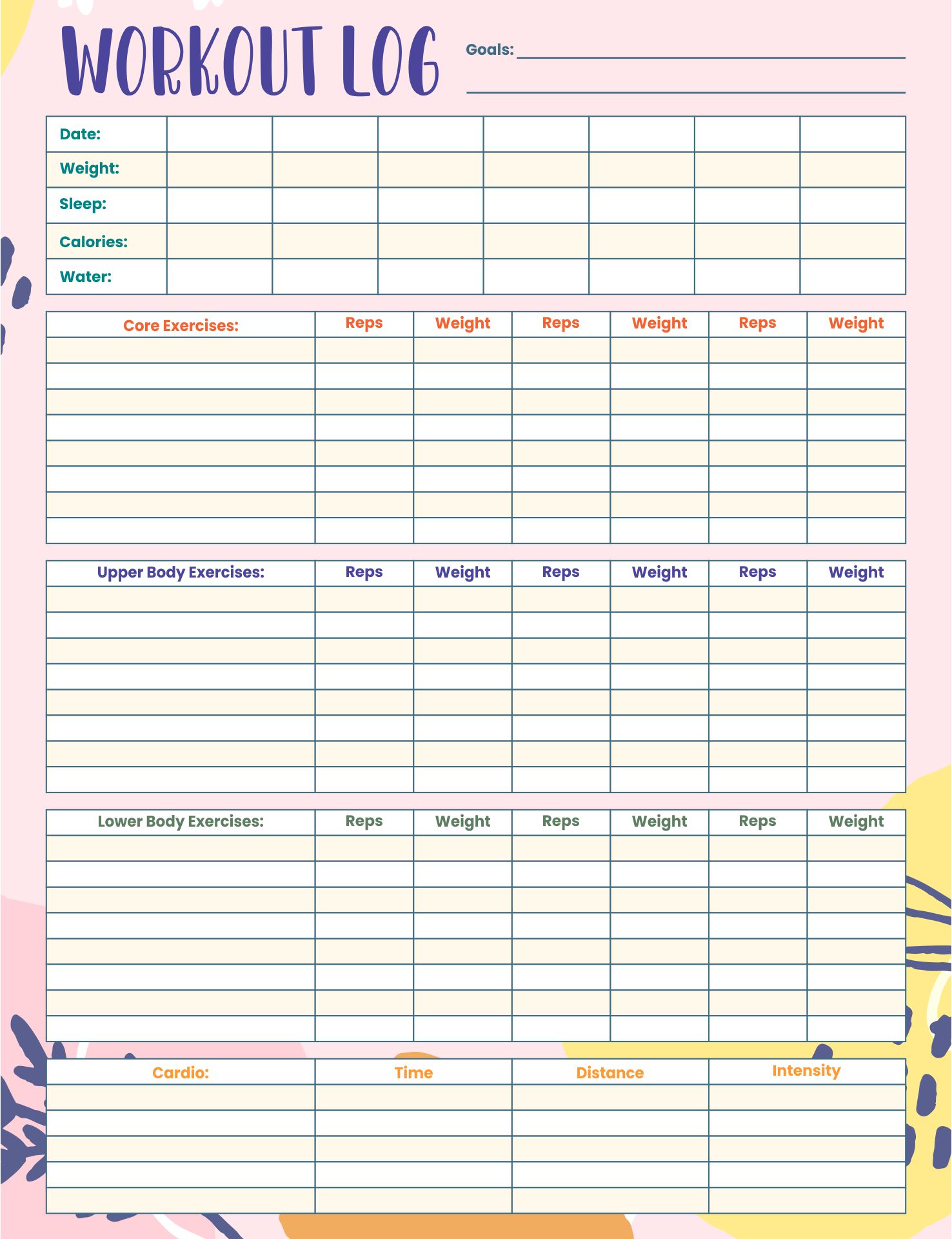
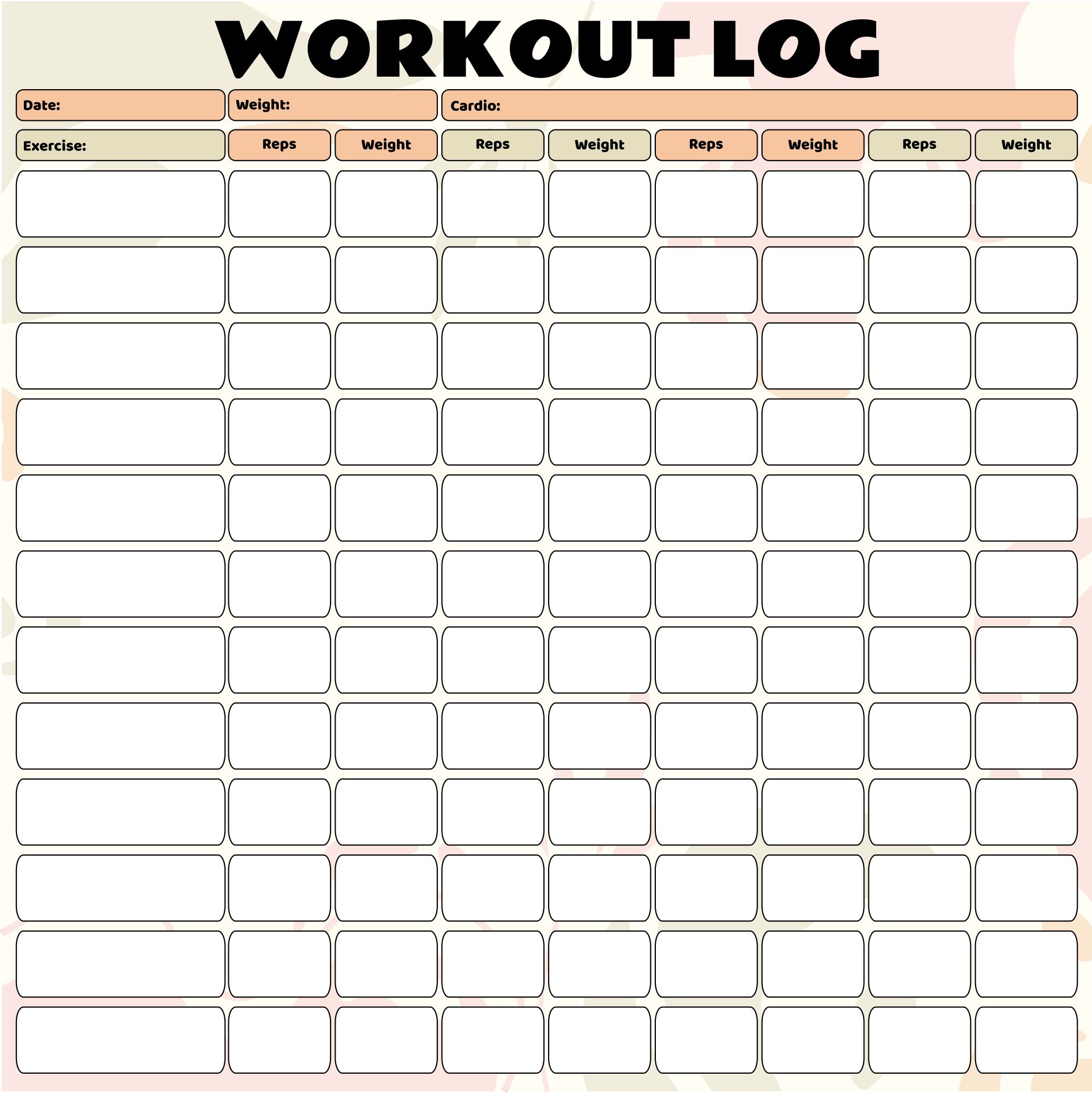
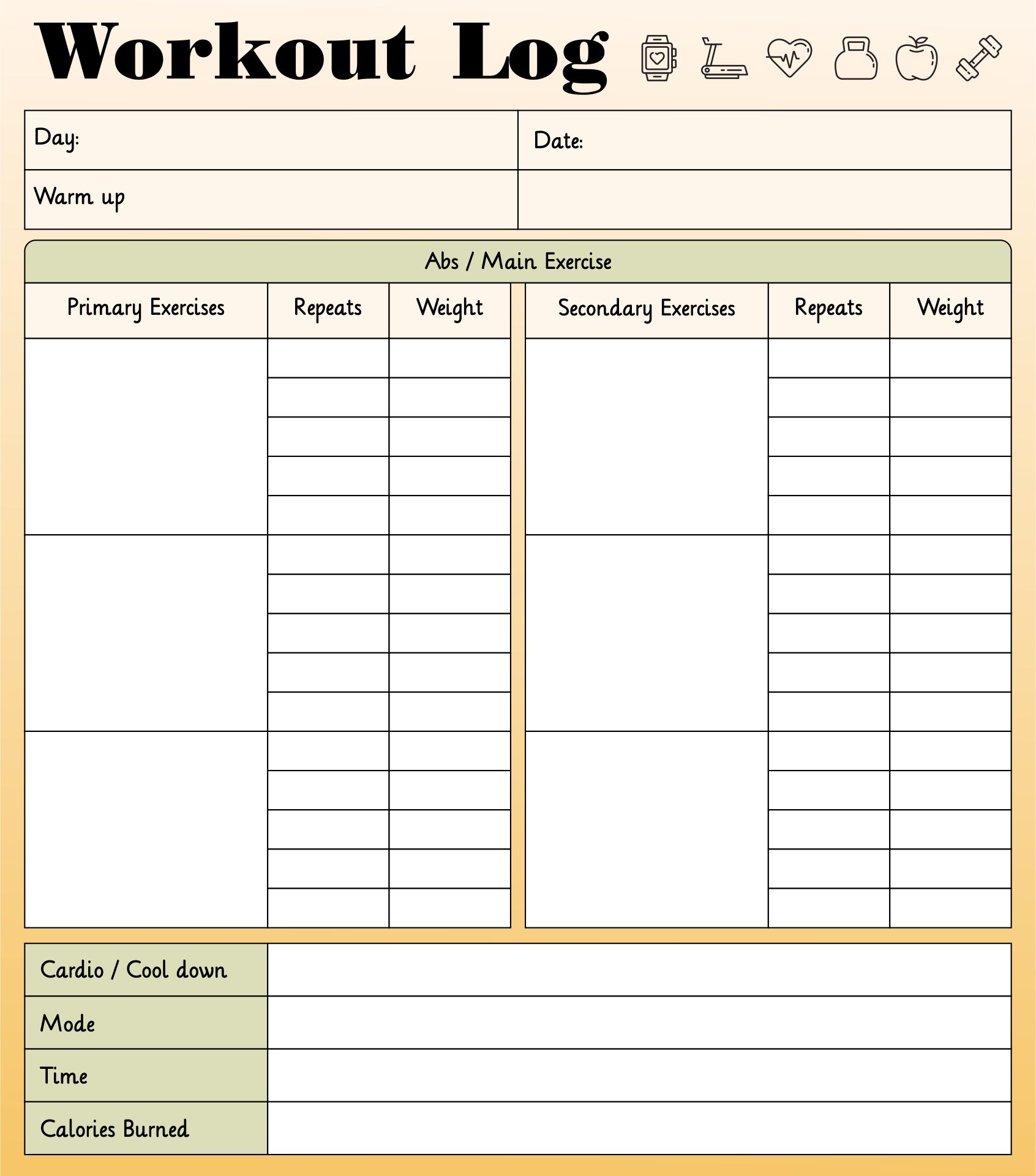
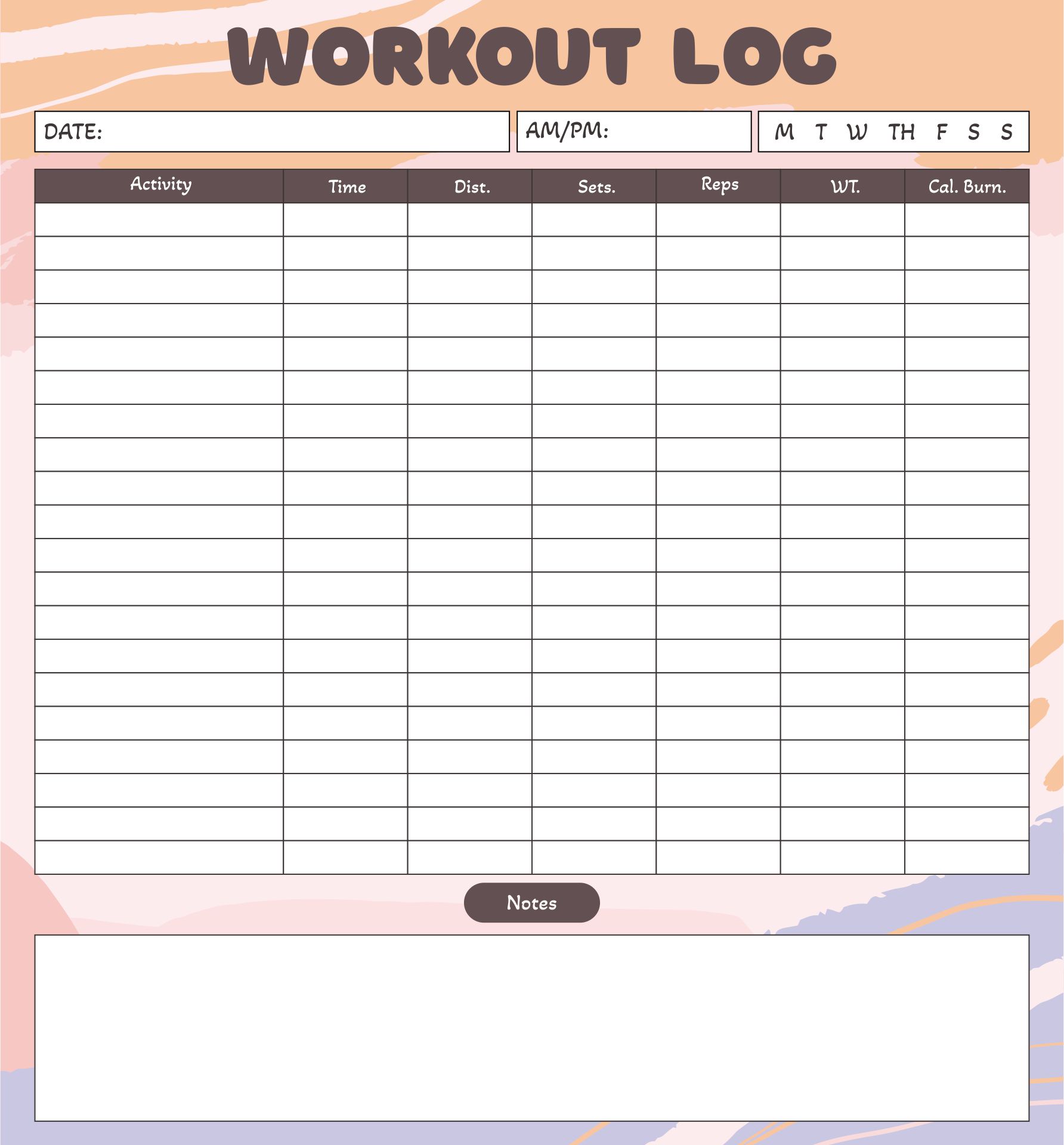
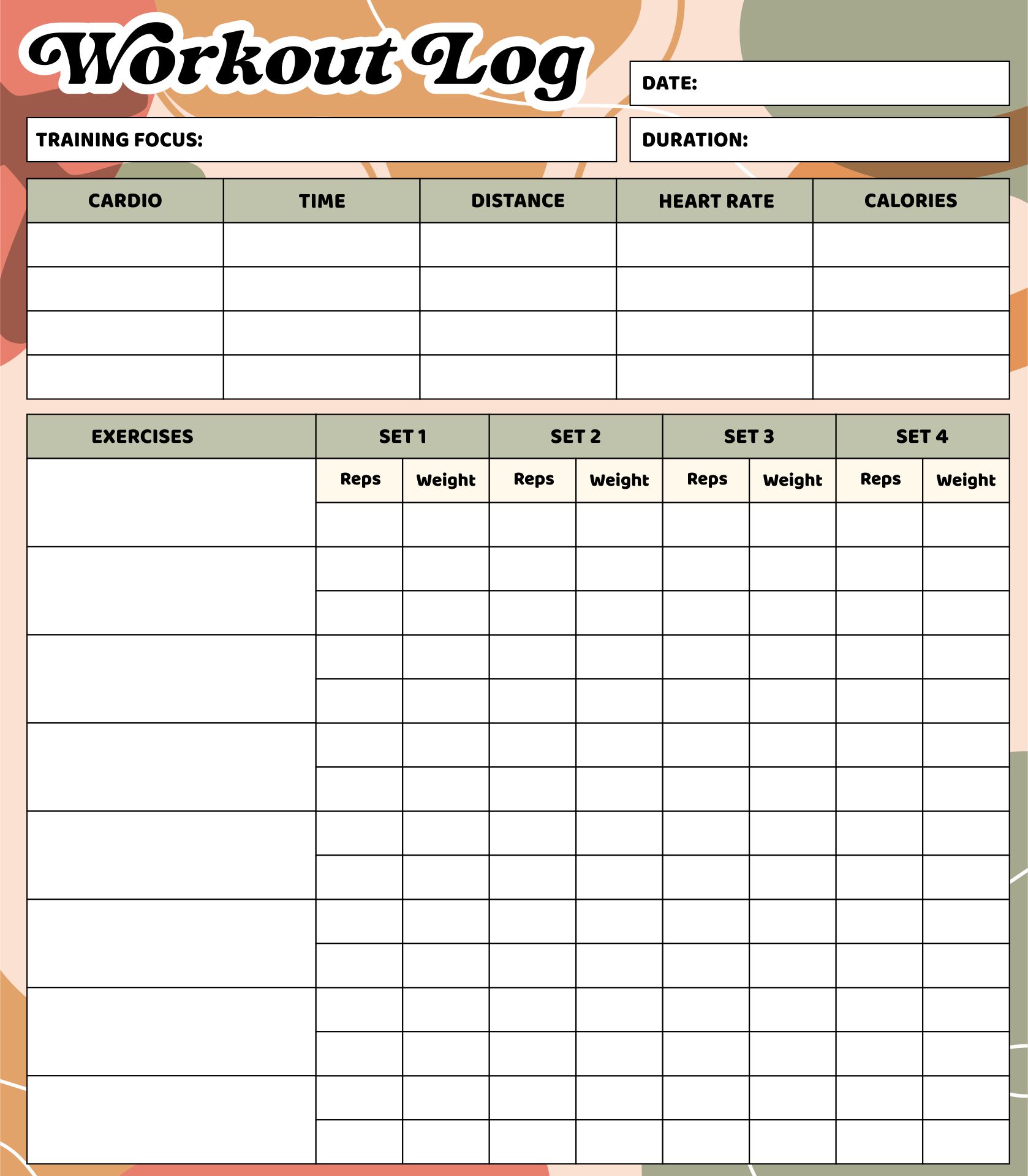
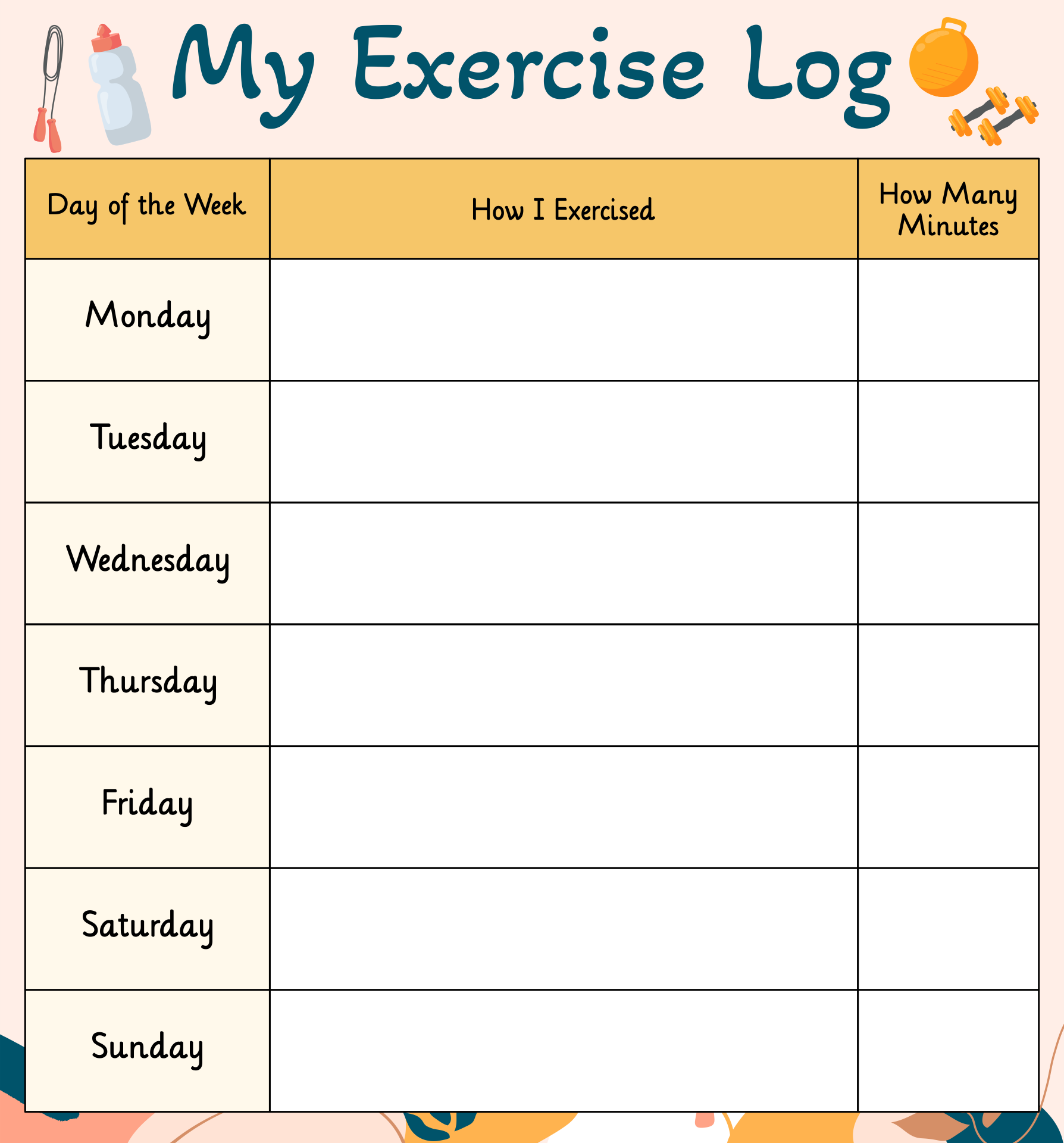
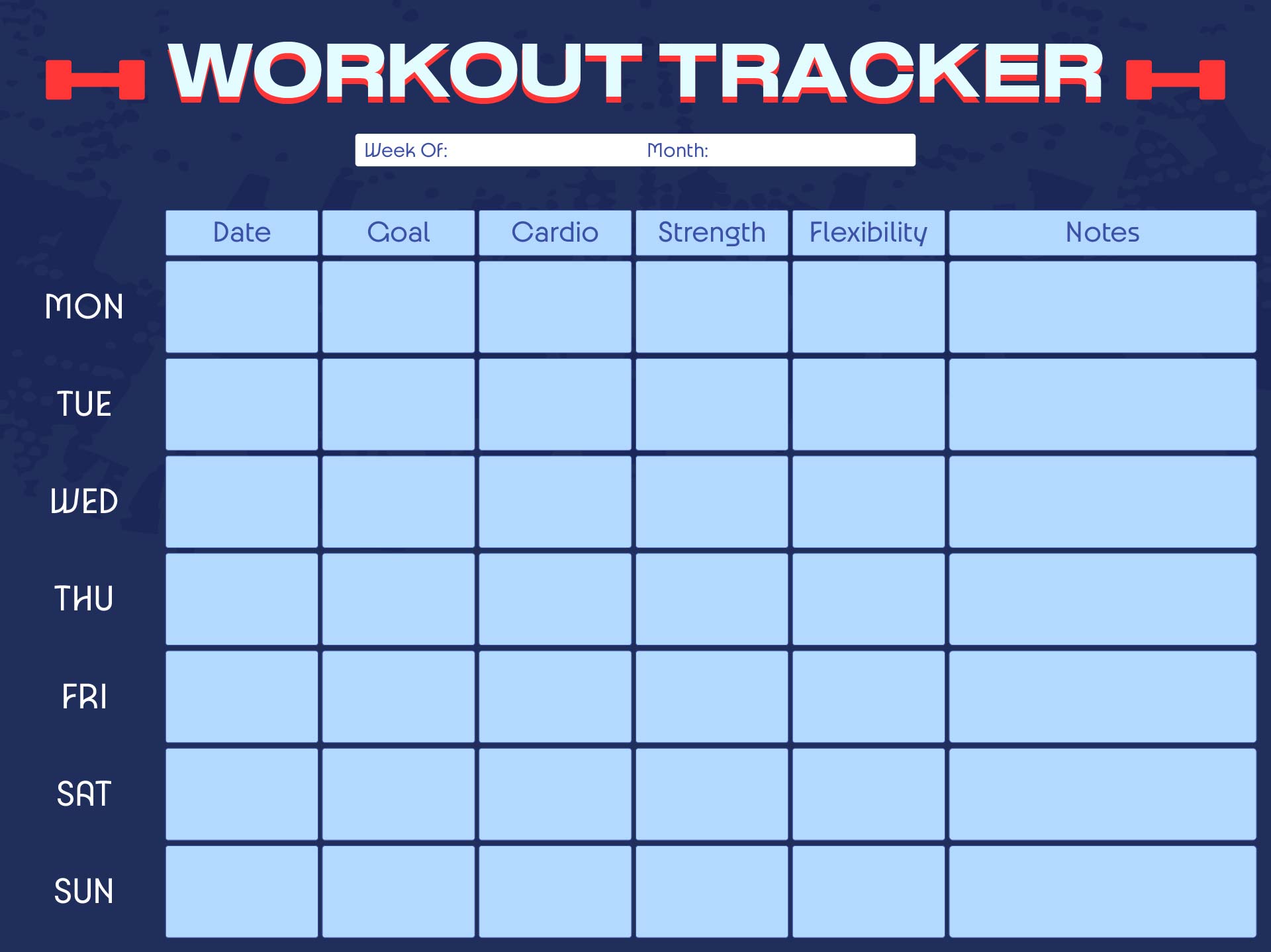
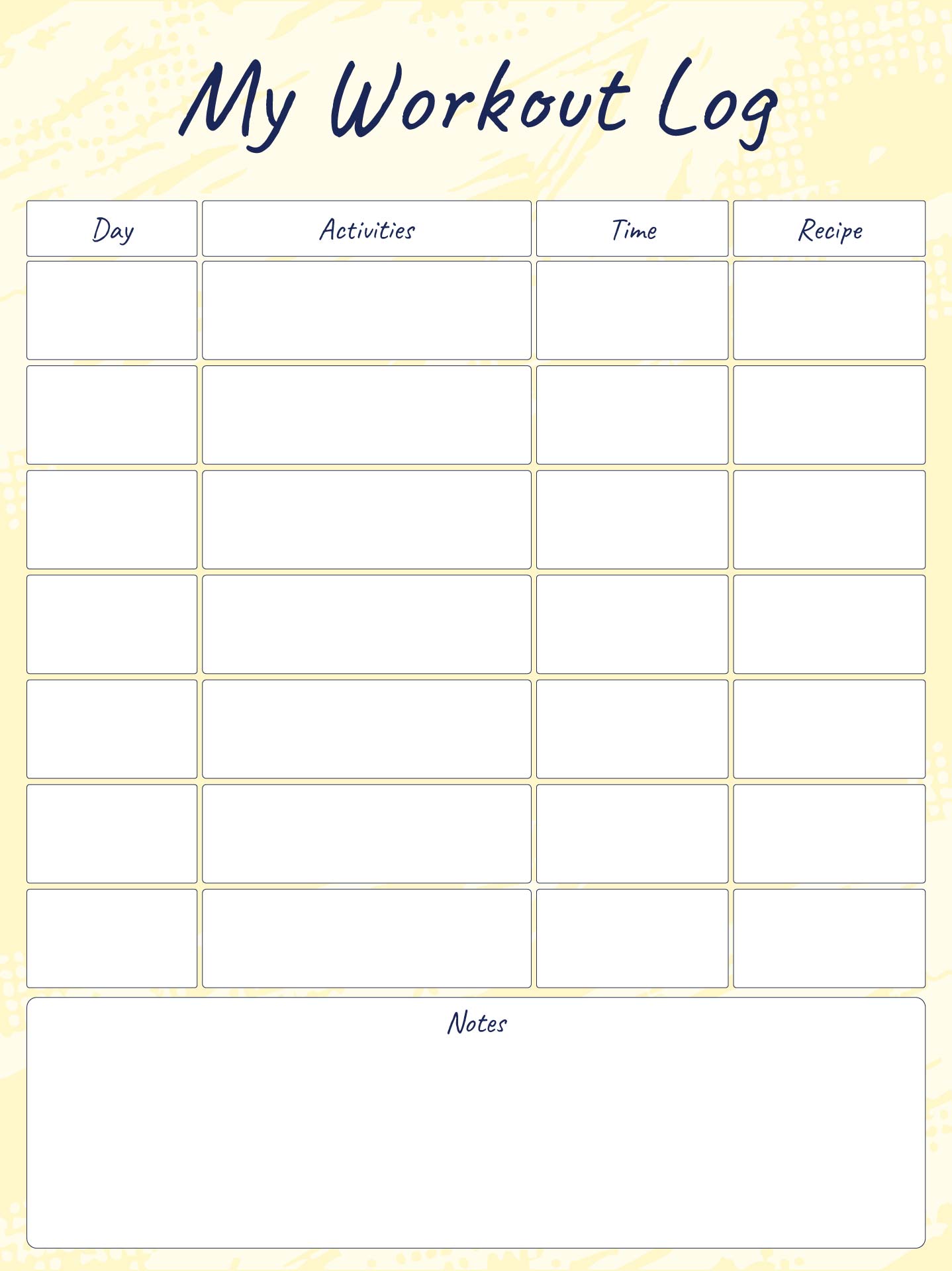
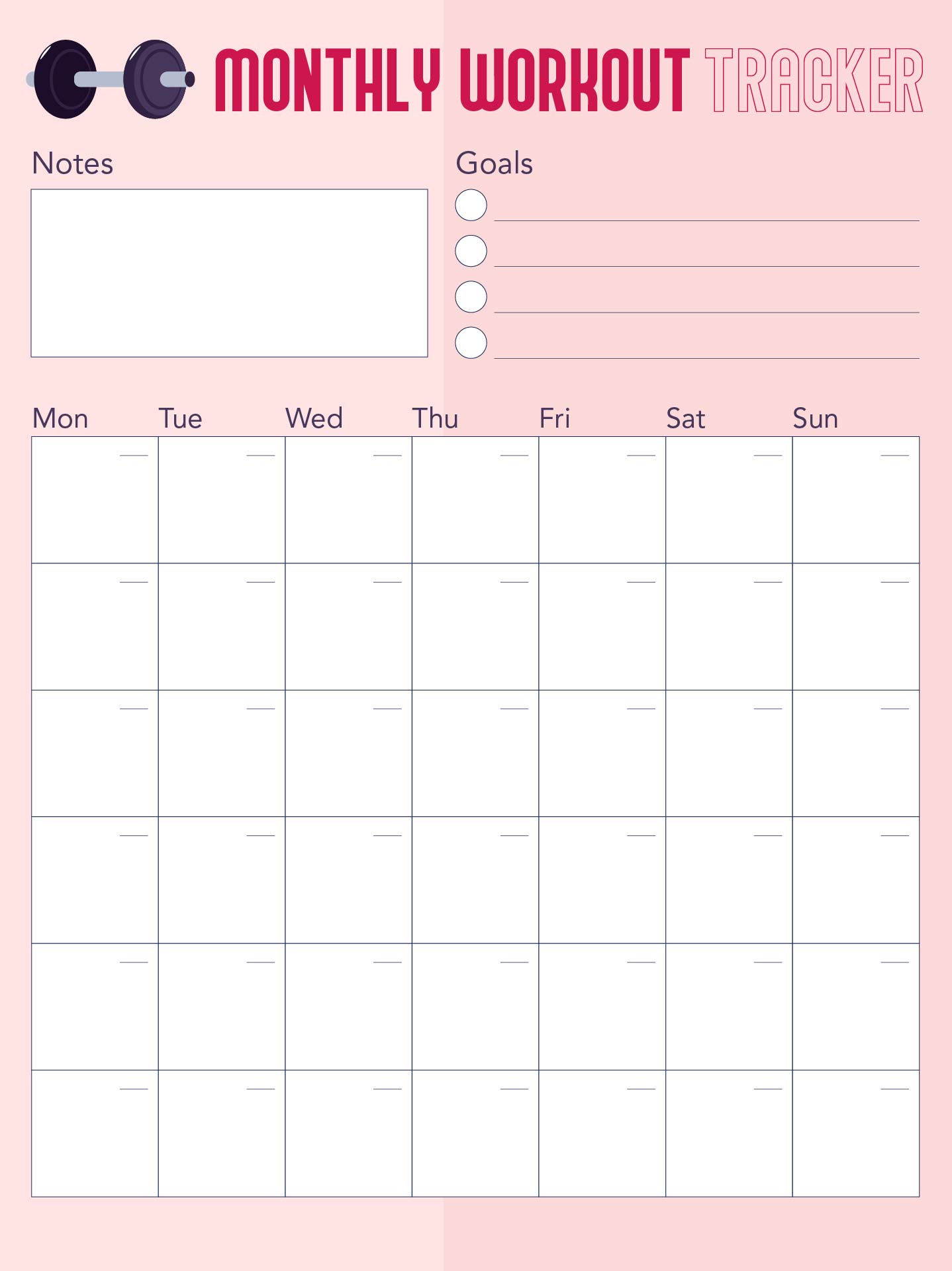
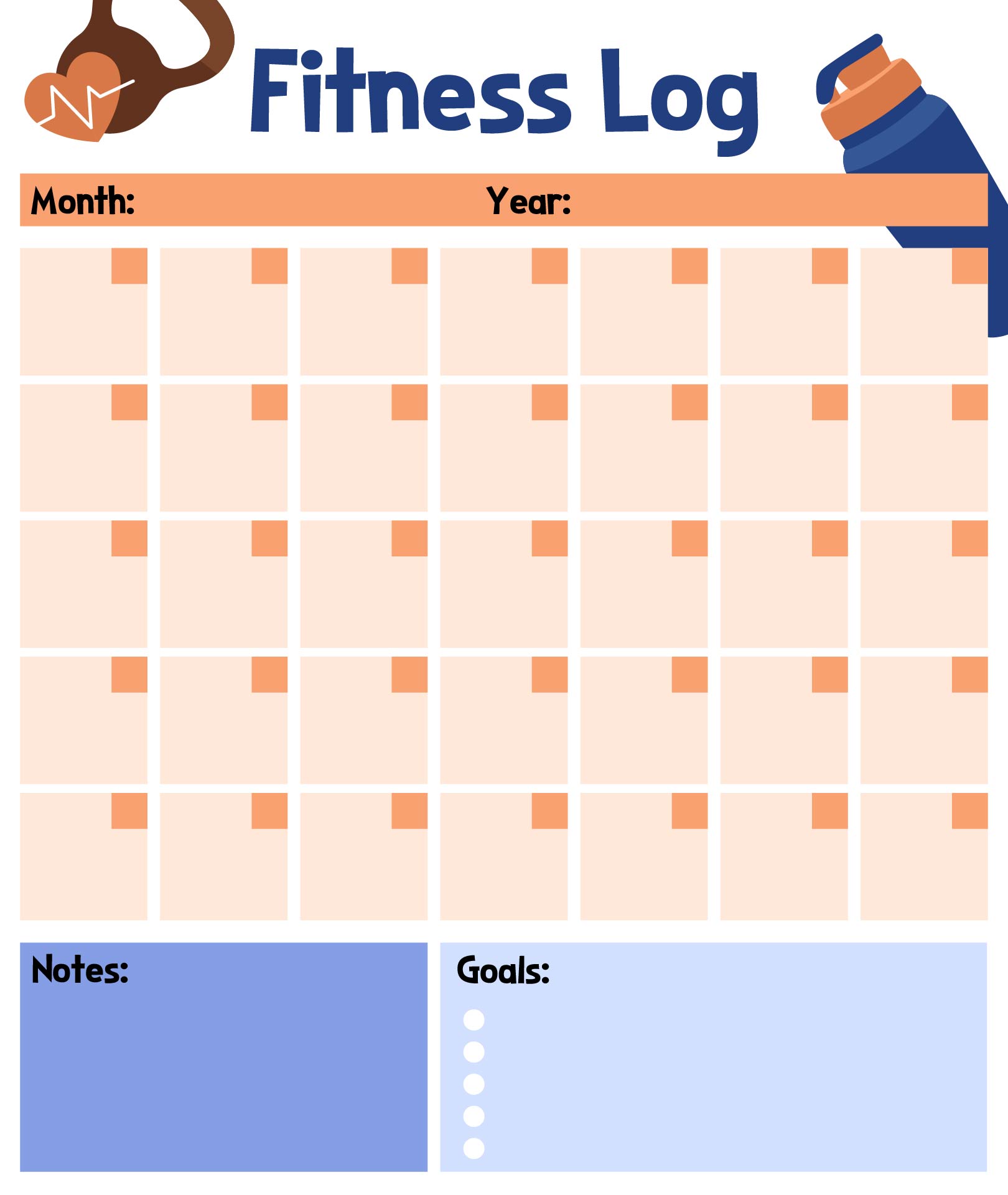
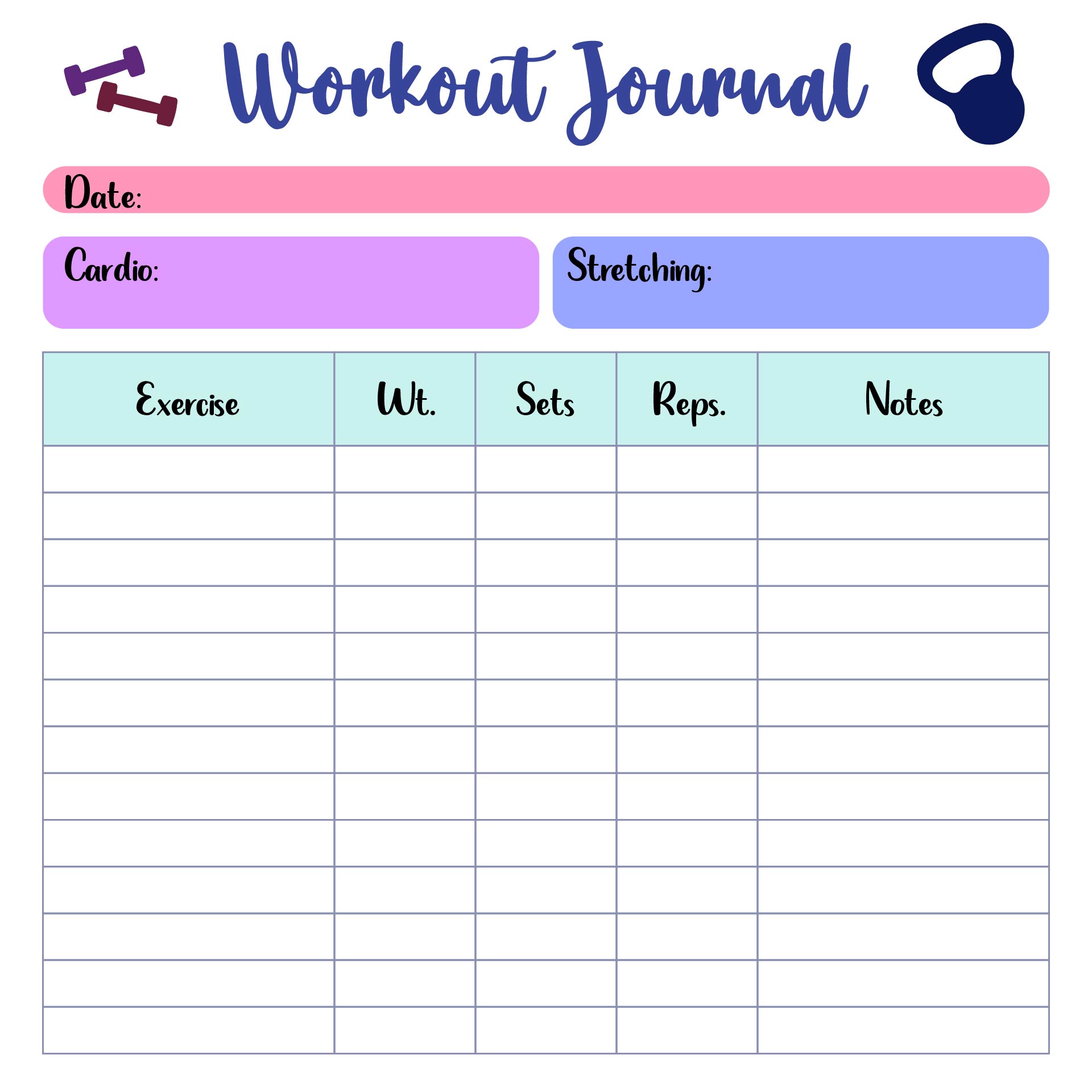
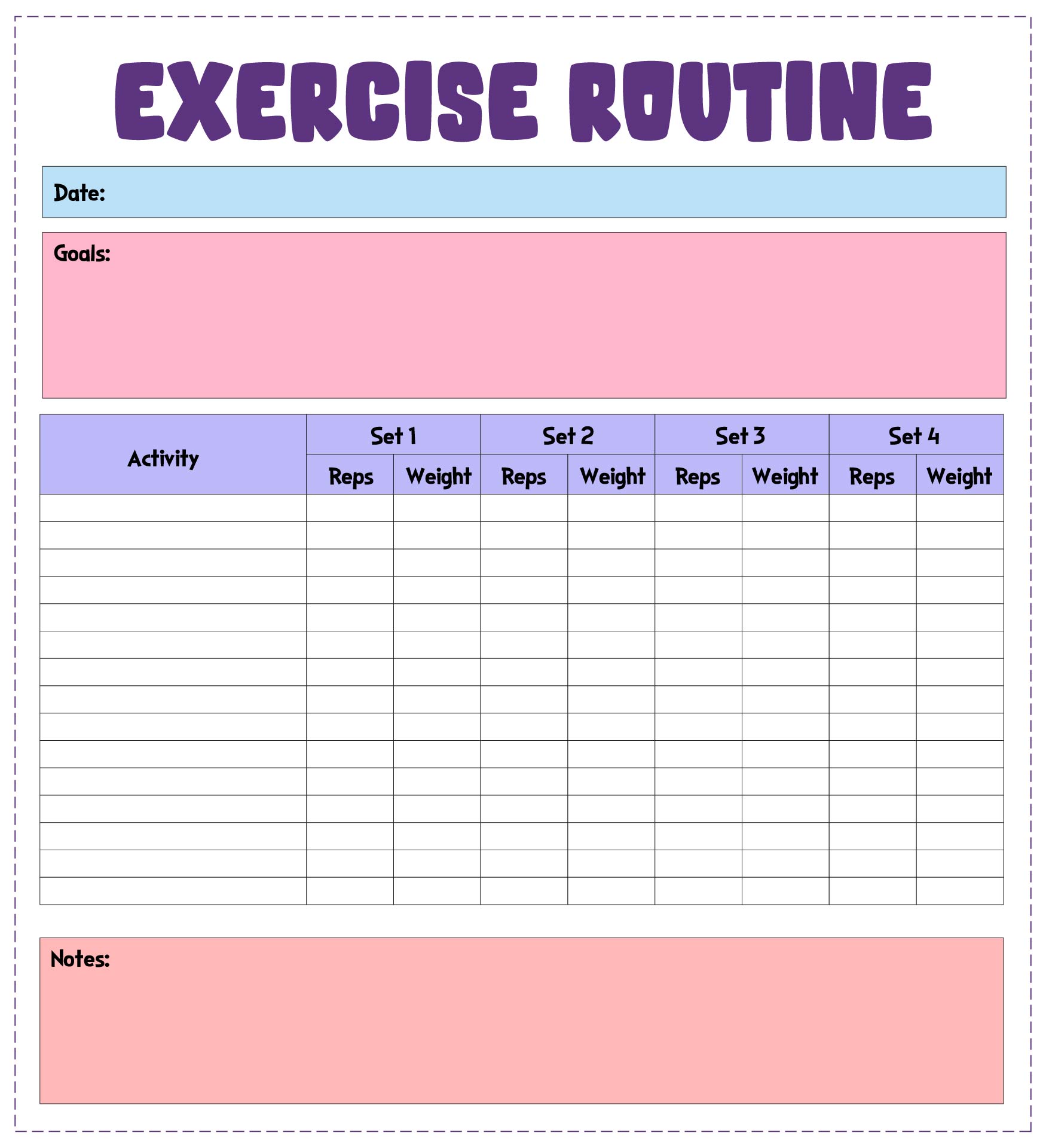
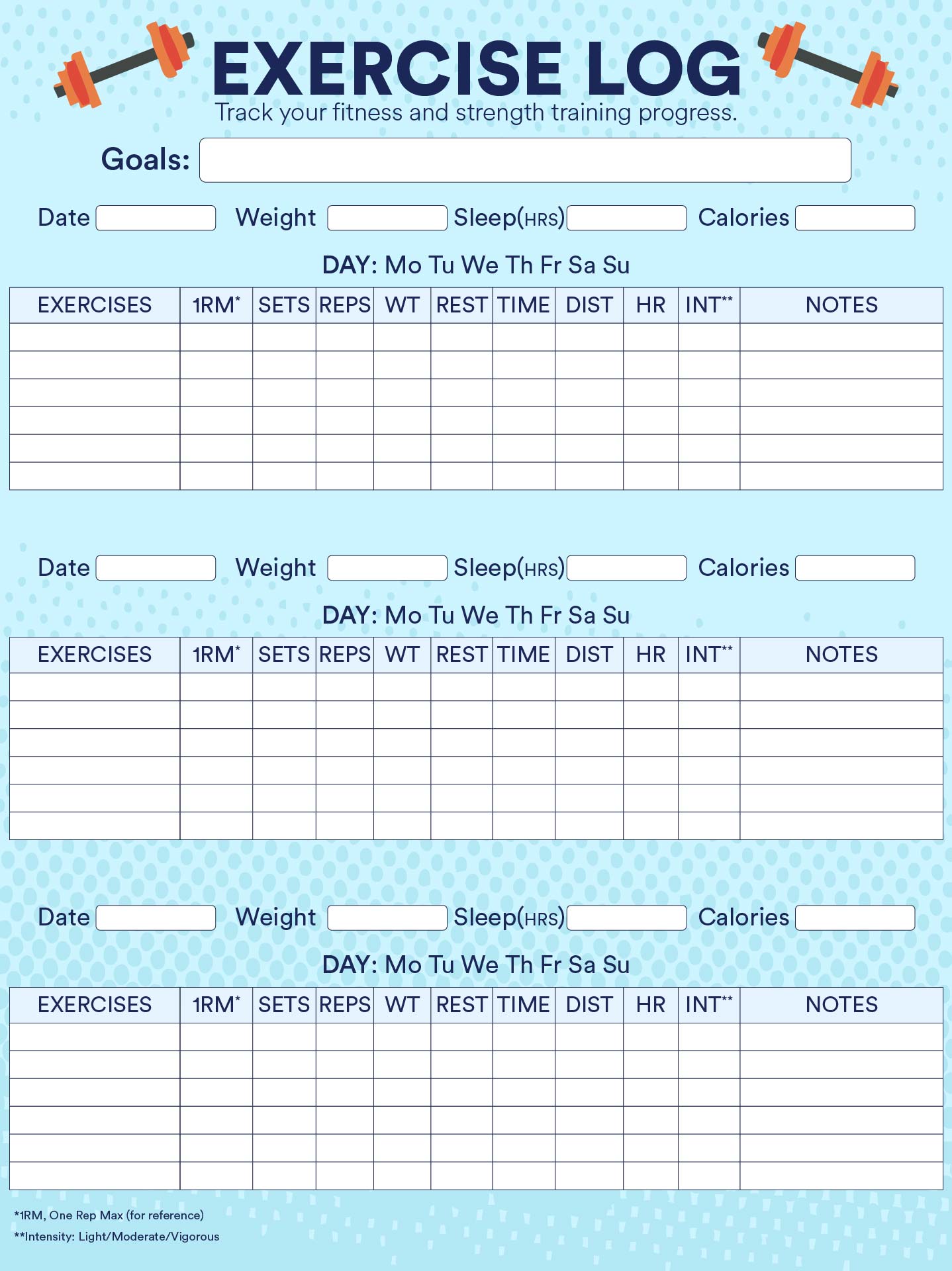
Have something to tell us?
Recent Comments